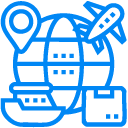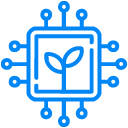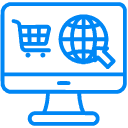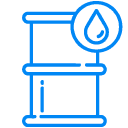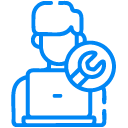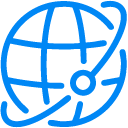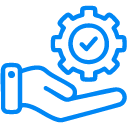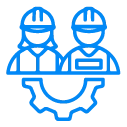Assist, monitor, inform, and engage every patient in your care.
Patient support programs have been known by various names, such as patient solutions, patient services, or patient assistance programs, depending on the type of service provider you’re speaking to. Traditionally, our industry has always been physician- and product-focused, until recently. Services such as digital therapeutics and remote monitoring have emerged and gained importance in recent times.
With an increase in healthcare access, healthcare professionals and the pharmaceutical industries have been striving to provide a better patient experience for their patients. But it’s a time-consuming task for pharmaceutical companies to check up or follow up on each patient to monitor and educate them about medications that help treat chronic, severe and rare diseases. Especially for drugs that come with several challenges like higher costs, delivery to patients, inaccessibility, storage, and distribution problems.
Alp Consulting Ltd.’s Patient Support Program (PSP) focuses on eliminating these gaps by providing solutions to the patients, providing end-to-end support throughout the journey of their medication/therapy process.

Our Service Offerings
Follow-ups and enrolments
To encourage patient enrolment and reduce the number of dropouts during medication, we have implemented a one-on-one strategy with patients and healthcare professionals and pharmaceutical companies. We also do adherence tracking, monitor health, send out treatment reminders, etc.
Drug Administration and Intervention
To ensure that patients receive all the necessary comfort, support, and any other related information, we have enabled drug administration and intervention strategies through our very capable and vigilant workforce.
Education, Counselling and Creating Awareness
We educate patients with formal and informal information and counsel them about any other apprehensions they might have regarding testing, prevention and care. Our Support lines include telephone and email.
Financial Support and Assistance
We understand the monetary concerns of patients, which is why we provide financial support to patients who may need it for therapy or medication expenses. This includes support for loans, NBFC/Insurance models, and even microloans.
Engagement Through Digital Means
As a digitally driven organisation, we have built platforms to scale the approach and ensure convenient and faster access to patients. This includes Digital Web/Mobile applications, virtual awareness and engagements, and online patient support and inpatient support.
Our Strengths

1
Continuous HR Support
Alp's centralised HR team & project HR bring in strong processes to facilitate the smooth functioning of the project. We also ensure complete employee lifecycle management.
2
Operations Support
We provide continuous training & share a helping hand with the counsellors to better control & improve the output from the counsellors. We also provide tele support for better patient support & outreach. We also provide 100% compliance with the law of the land, Set process, and other codes of conduct.


4
Knowledge Sharing
Every learning in the process of project evolution is shared with teams to enhance learning & better outcomes. We have a holistic approach to partner/vendor management. We also provide a dedicated SPOC and dashboard to facilitate seamless knowledge sharing.

Looking for A Trusted PSP Partner?
With Alp's pharma program solutions, you can improve access to, usage of, and adherence to your prescription drug treatments.
Benefits of the Patient Support Program

Industries We Serve
Our Value Proposition
1
Initiating and Scaling the Programs - We develop the teams, strengthen, & Scale up the Programs in different regions.
2
Team Building - Built up performing teams in different regions to increase Patient & Doctor outreach and enrollments.
3
Process Improvement - Improved processes to effectively monitor Patients and Doctor Empanelment to increase footprint and effective implementation of Programs
4
Digitalising Interventions - Digitised Consent Management & reporting ADR events through the System digitally
5
Effective Cost Management - Focused approach to manage the cost of service delivery
Trusted by 400+ Leading Brands
Latest Trends in Patient Support Programs
1. Advanced Tech Integration
AI tools and predictive analytics methods are increasingly being used in patient care programs to identify high-risk and at-risk patients, automating and speeding tasks, etc.
2. Holistic and Personalised Care
A new trend of customised care tailored to one's requirements is becoming very popular. Focus is on the whole patient journey and not one medical emergency.
3. Integrated Landscapes
A unified system is being designed to track patient journeys where different ecosystems are seamlessly integrated.
4. Patient Self Advocacy
Patients have become digitally literate, and they are demanding user-friendly platforms and tools to access their data easily, track improvements, etc. The advent of telehealth and other apps is facilitating the bridging of gaps.
What Our Delighted Clients Have to Say About Us
Our clients trust us with their workforce requirements because we have proven our mettle for three decades.



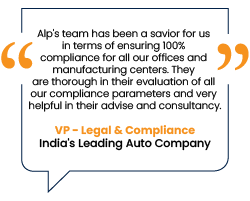
Frequently Asked Questions
As per the British Pharmaceutical Industry Association, a PSP is an organised data collection system (ODCS) where a marketing authorisation holder (MAH) receives and collects information relating to the use of its medicinal products.
Patient support programs are initiatives designed to assist patients in managing their health conditions, improving their quality of life, and navigating the healthcare system. These programs can vary widely depending on the condition, healthcare provider, or pharmaceutical company offering them.
Here are some examples of patient support programs:
- Medication Adherence Programs: These programs provide resources, reminders, and educational materials to help patients adhere to their prescribed medication regimens. They may include medication synchronization, blister packaging, and refill reminders.
- Disease-specific Education and Counseling: Patients with chronic conditions like diabetes, cancer, or heart disease may benefit from programs that offer disease-specific education, counseling, and lifestyle management guidance.
- Financial Assistance: Some patient support programs provide financial assistance or co-pay assistance to help patients afford expensive medications or medical treatments. These programs often have income or insurance eligibility criteria.
- Nurse Hotlines and Telehealth Support: Patients can access registered nurses or healthcare professionals through hotlines or telehealth platforms for guidance on managing their conditions, answering questions, and addressing concerns.
- Specialty Pharmacy Services: Specialty pharmacies offer personalized services for patients with complex or rare conditions, including medication management, home delivery, and support from clinical pharmacists.
- Peer Support Groups: These programs connect patients facing similar health challenges to share experiences, advice, and emotional support. They can be in-person or online communities.
- Wellness and Lifestyle Coaching: Programs focused on overall well-being may include lifestyle coaching, nutrition counseling, exercise plans, and stress management techniques to help patients lead healthier lives.
- Remote Monitoring: Remote monitoring programs use technology to track patients' vital signs and symptoms, enabling healthcare providers to intervene early if issues arise.
- Transportation Assistance: Some patient support programs offer transportation services or reimbursements for patients who need assistance getting to medical appointments.
- Home Health Care Services: Patients who require ongoing medical care or assistance with activities of daily living may receive home health care services, including nursing care, physical therapy, or personal care aides.
- Access to Clinical Trials: Patients with serious or rare conditions may gain access to experimental treatments through clinical trial enrollment facilitated by patient support programs.
- Health Insurance Navigation: Navigators or advocates help patients understand their health insurance coverage, benefits, and rights, ensuring they receive the care they need without unexpected financial burdens.
- Interpreter Services: For patients with limited English proficiency, interpreter services may be provided to ensure effective communication with healthcare providers.
- Coping and Mental Health Support: Patients dealing with chronic illnesses or serious medical conditions may benefit from mental health counseling, support groups, or therapy services.
- Health Education Materials: Patient support programs often distribute educational materials, brochures, and online resources to empower patients with knowledge about their conditions and treatment options.
Patient support programs play a crucial role in the healthcare ecosystem for several reasons:
- Improved Health Outcomes: Patient support programs can enhance patient education, medication adherence, and disease management. By providing patients with the resources and support they need, these programs can help individuals better manage their health conditions, leading to improved health outcomes and reduced hospitalizations.
- Enhanced Quality of Life: Chronic illnesses and complex medical conditions can significantly impact a patient's quality of life. Patient support programs often address the holistic needs of patients, helping them cope with the physical, emotional, and social aspects of their conditions, which can lead to a better quality of life.
- Increased Medication Adherence: Non-adherence to prescribed medications is a common issue in healthcare, leading to treatment failures and increased healthcare costs. Patient support programs can offer reminders, education, and financial assistance to promote medication adherence, resulting in more effective treatments.
- Empowerment and Education: Patient support programs empower individuals by providing them with information, tools, and skills to actively participate in their healthcare decisions. Educated patients are more likely to make informed choices and advocate for their own health.
- Reduced Healthcare Costs: Improved disease management and medication adherence can lead to cost savings in the long run. By preventing complications and hospitalizations, patient support programs can reduce healthcare expenses for both patients and healthcare systems.
- Timely Intervention: Programs that include remote monitoring or nurse hotlines enable early detection of potential health issues. This allows for timely intervention, preventing the progression of illnesses and reducing the severity of complications.
- Support for Vulnerable Populations: Patient support programs can be especially important for vulnerable populations, such as those with low income, limited access to healthcare, or language barriers. These programs help bridge gaps in care and improve health equity.
- Access to Specialized Care: Patients with rare or complex medical conditions often require specialized care and resources. Patient support programs can connect these individuals to experts, clinical trials, and cutting-edge treatments that may not be readily available elsewhere.
- Emotional and Social Support: Dealing with a chronic illness or serious medical condition can be emotionally challenging. Support groups, counseling services, and peer networks provided by patient support programs offer emotional and social support, reducing feelings of isolation and anxiety.
- Patient-Centered Care: Patient support programs emphasize a patient-centered approach to healthcare. They recognize the unique needs and preferences of each patient, promoting personalized care plans and better patient-provider communication.
- Compliance with Treatment Plans: Patients who feel supported and engaged in their care are more likely to follow their treatment plans and attend medical appointments, leading to better overall health.
- Research and Data Collection: Some patient support programs collect valuable data on patient outcomes, treatment effectiveness, and healthcare utilization. This information can inform future research and healthcare decision-making.
- In summary, patient support programs are essential because they address various aspects of patient care, from education and empowerment to emotional support and financial assistance. By focusing on the holistic needs of patients, these programs contribute to better health outcomes, improved quality of life, and more cost-effective healthcare delivery.
Submit The Form Below
Want to explore partnership with Alp?
Whether you are a startup on a growth trajectory or a large organization struggling to maintain your talent pipeline or a company looking to outsource HR or training functions, we have bespoke solutions for everyone!
Just submit the form above (for mobile) or on the left (for desktop) and we will get back to you within 2 working days.
Please do NOT fill the form for any job related query. If you are looking for a job please visit our careers page. If you need any support from our HR team please send an email to hr@alpconsulting.in.

